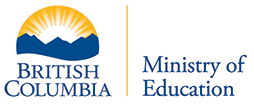
Unit Plan: Evolution and Natural Selection
Science / Grade 7
Big Ideas
Evolution by natural selection provides an explanation for the diversity and survival of living things.
Concepts
- Change
- Development
- Diversity
- Survival
- Cause/effect
Essential Questions
Students will keep considering…
- N/A
Evaluative Criteria
Teachers should consider how summative assessments should be based on clear criteria and include a variety of ways for students to show demonstrate their learning.
- Students are able to explain why living things change over time and how these changes affect biodiversity.
Monitoring Progress
Teacher will monitor progress:
Teachers can monitor progress through ongoing formative assessment including but not limited to:
- N/A
Resources
N/A
Reflection
How will teachers and their students reflect on and evaluate the completed project?
Teacher Reflection
- What aspects of the unit went well
- What did students struggle with
- What did you struggle with?
- What would you add/revise the next time you taught this unit?
- Were there any unintended outcomes?
- Were students engaged?
Downloads
Stage 1 – Desired Results
Big Ideas
Evolution by natural selection provides an explanation for the diversity and survival of living things.
Concepts:
- Change
- Development
- Diversity
- Survival
- Cause/effect
Transfer Goals
Students will be able to independently use their learning to…
- N/A
Meaning
Students will understand that…
-
Organisms have evolved over time.
-
Change in traits of populations over time.
-
All organisms need space, food, water, and access to resources in order to survive.
-
The natural process by which certain traits that have a greater fitness for their environment lead to a reproductive advantage; this process happens within a population over time because of genetic variation.
Students will keep considering…
- N/A
Acquisition
Students will be skilled at…
QUESTIONING AND PREDICTING
- Demonstrate a sustained intellectual curiosity about a scientific topic or problem of personal interest
- Make observations aimed at identifying their own questions about the natural world
- Identify a question to answer or a problem to solve through scientific inquiry
- Formulate alternative “If…then…” hypotheses based on their questions
- Make predictions about the findings of their inquiry
PROCESSING AND ANALYZING DATA AND INFORMATION
- Experience and interpret the local environment
- Apply First Peoples perspectives and knowledge, other ways of knowing, and local knowledge as sources of information
- Construct and use a range of methods to represent patterns or relationships in data, including tables, graphs, keys, models, and digital technologies as appropriate
- Seek patterns and connections in data from their own investigations and secondary sources
- Use scientific understandings to identify relationships and draw conclusions
EVALUATING
- Demonstrate an understanding and appreciation of evidence (qualitative and quantitative)
- Exercise a healthy, informed skepticism and use scientific knowledge and findings from their own investigations to evaluate claims in secondary sources
- Consider social, ethical, and environmental implications of the findings from their own and others’ investigations
APPLYING AND INNOVATING
- Contribute to care for self, others, community, and world through personal or collaborative approaches
- Co-operatively design projects
- Transfer and apply learning to new situations
- Generate and introduce new or refined ideas when problem solving
COMMUNICATING
- Communicate ideas, findings, and solutions to problems, using scientific language, representations, and digital technologies as appropriate
- Express and reflect on a variety of experiences and perspectives of place as sources of information
- Organisms have evolved over time.
- Change in traits of populations over time.
- All organisms need space, food, water, and access to resources in order to survive.
- The natural process by which certain traits that have a greater fitness for their environment lead to a reproductive advantage; this process happens within a population over time because of genetic variation.
Which Core Competencies will be integrated into the unit?
- N/A
First People's Principles of Learning
The unit will make connections with:
- N/A

The following resources are made available through the British Columbia Ministry of Education. For more information, please visit BC’s New Curriculum.
Big Ideas
The Big Ideas consist of generalizations and principles and the key concepts important in an area of learning. The Big Ideas represent what students will understand at the completion of the curriculum for their grade. They are intended to endure beyond a single grade and contribute to future understanding.
Core Competencies
 Communications Competency
Communications Competency
The set of abilities that students use to impart and exchange information, experiences and ideas, to explore the world around them, and to understand and effectively engage in the use of digital media
 Thinking Competency
Thinking Competency
The knowledge, skills and processes we associate with intellectual development
 Social Competency
Social Competency
The set of abilities that relate to students’ identity in the world, both as individuals and as members of their community and society
Curricular Competencies & Content
Curricular Competencies are the skills, strategies, and processes that students develop over time. They reflect the “Do” in the Know-Do-Understand model of curriculum. The Curricular Competencies are built on the thinking, communicating, and personal and social competencies relevant to disciplines that make up an area of learning.
Additional Resources
First People's Principles of Learning
To read more about First People’s Principles of Learning, please click here.
For classroom resources, please visit the First Nations Education Steering Committee.
